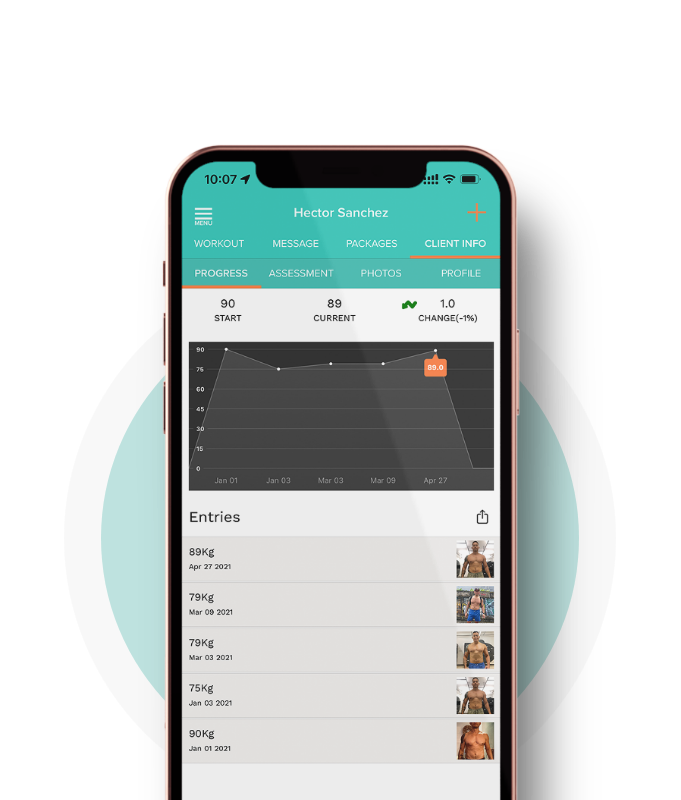Discussing Alcohol & Nutrition: Making Mindful Choices
Hey Fellow Trainers,
Let's get real. For many of our clients, enjoying a few drinks is just part of their daily routine—whether it’s a cocktail after work, a toast at a wedding, or simply unwinding with a drink. It’s easy to overlook how alcohol can impact overall health and wellness. However, when guiding our clients towards mindfulness in their daily habits, being intentional about alcohol consumption is crucial.
As personal trainers, we need to understand these impacts to provide better guidance to our clients.
Personal Experience and Moderation
I’m no saint—I drink 3-5 beers per week and sometimes hit up the bars and clubs here in Canggu, Bali. But I believe in moderation. If I party for 1-2 days and drink 5-10 beers on a weekend, I make sure to hit the gym hard the following week and abstain from alcohol for the next 5-10 days. During this time, I ensure my nutrition and sleep are on point.
A Quick Guide to Alcohol Consumption
Let's start with some basics. Moderate drinking is generally defined
as:
Men: Up to two standard drinks per day, up to 14 per
week.
Women: Up to one standard drink per day, up to seven per
week.
Light or social drinking involves consuming alcohol in smaller amounts, typically below moderate levels. On the other hand, heavy drinking exceeds moderate recommendations and can harm health. This includes binge drinking—more than 5+ drinks for men and 4+ drinks for women in one sitting.
How Does Alcohol Impact Nutrition?
Increased Food Intake
Alcohol can impair decision-making and self-control, leading to increased
consumption of lower-quality, high-calorie foods. Even moderate drinking
can result in higher calorie intake. Clients often reach for high-fat,
ultra-processed foods when drinking, which lowers nutrient density despite
higher calorie consumption.
Dehydration
Alcohol acts as a diuretic, leading to dehydration, which negatively
impacts physical and cognitive performance, mood, and exercise recovery.
Dehydration can exacerbate the negative effects of alcohol on overall
fitness and wellness.
Metabolism Disruption
When alcohol enters the body, metabolizing it becomes the top priority,
affecting other metabolic, repair, and maintenance functions. This
prioritization delays recovery from workouts and sleep. Alcohol also
compromises aerobic metabolism by prioritizing alcohol over fats and
carbohydrates as energy sources.
Nutrient Absorption
Alcohol can interfere with nutrient absorption, leading to deficiencies. It
affects the gut microbiome and reduces the absorption of essential
nutrients, depleting stored micronutrients and electrolytes, and causing
deficiencies in vitamins and minerals like Thiamin, Vitamin B6, Folate,
Vitamin A, and potentially Vitamin D.
Muscle Growth
Alcohol can hinder muscle growth by disrupting key processes in muscle and
strength development. It lowers testosterone levels and impairs protein
synthesis, which are crucial for muscle repair and growth.
Sleep Disruption
Alcohol negatively impacts sleep quality by increasing sleep apnea,
blocking REM sleep, and elevating body temperature. This leads to poorer
nutritional choices due to decreased self-regulation caused by lack of
quality sleep.
Alcohol Nutrition Info
Alcohol doesn’t come with nutritional labels, making it difficult to determine the calories and ingredients. One gram of alcohol has seven calories, but calculating the total calories in a drink depends on the size, alcohol content, and additional ingredients.
How Can Mindful Drinking Help?
Mindful drinking involves making intentional, informed choices about alcohol consumption. It’s about balancing drinking with other stress coping strategies and making better food choices while drinking. Encourage your clients to:
- Be aware of what they’re drinking.
- Control nutritional portions while drinking.
- Balance drinking with healthier stress management techniques.
Mindful drinking isn’t about judging or enforcing sobriety; it’s about making choices that align with individual health goals. Let’s guide our clients to make informed decisions about their nutrition and alcohol consumption.
Practical Tips for Personal Trainers
Educate Clients on the Impact of Alcohol
Make sure your clients understand how alcohol can affect their nutrition
and fitness goals. Use examples from their own routines to illustrate the
effects.
Encourage Hydration
Emphasize the importance of staying hydrated, especially if clients choose
to drink. Suggest alternating alcoholic beverages with water to minimize
dehydration.
Promote Balanced Choices
Help clients make better food choices when they do drink. Encourage
nutrient-dense snacks and meals that support their overall health and
fitness goals.
Set Realistic Goals
Work with clients to set realistic drinking goals that align with their
health objectives. This could mean reducing the frequency of drinking,
choosing lower-calorie options, or integrating alcohol-free days into their
routine.
Conclusion
As personal trainers, we play a vital role in helping our clients achieve their health and fitness goals. By understanding the impact of alcohol on nutrition and metabolism, we can provide better guidance and support. Mindful drinking is about making informed, intentional choices that support overall wellness. Let’s empower our clients to make healthier decisions and reach their full potential.
Stay strong and healthy,
Hector Sanchez
CEO, The Training Notebook




